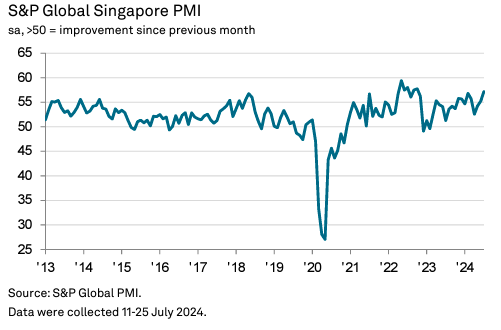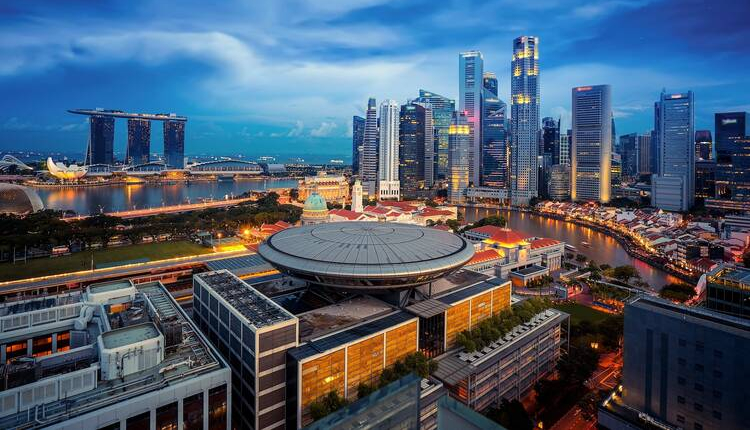Singapore’s private sector experienced significant growth in July, as indicated by the latest S&P Global Singapore Purchasing Manager’s Index (PMI) data.
The PMI rose to 57.2 from June’s 55.2, marking the fastest improvement in business conditions since October 2022 and a seventeenth consecutive month of expansion.
New business and activity grew at their quickest rates since late 2022, driven by strong underlying demand conditions and effective business development strategies. This surge in demand led to higher levels of purchases and inventory holdings. In particular, the transport, information, and communication sectors recorded the fastest upticks in both output and new sales.

Employment growth reached a five-month high as businesses hired more staff to handle increased capacity pressures. Both full-time and part-time positions were added, reflecting businesses’ positive expectations for future growth. The acceleration in new orders also resulted in a significant accumulation of backlogged work, prompting firms to further expand their workforce.
Price pressures intensified in July, with higher purchase prices and wages contributing to increased input costs. The rate of input cost inflation accelerated for the second consecutive month to its highest since February. Consequently, firms raised their selling prices at a faster pace, passing on some of the additional costs to clients.
Overall, sentiment in the Singaporean private sector remained positive, with hopes that new product launches and other business development efforts would continue to spur sales in the coming months. However, optimism levels softened to a four-month low, matching the long-run average.
Jingyi Pan, Economics Associate Director at S&P Global Market Intelligence, noted that while confidence converged with the long-run average, businesses’ solid hiring pace and elevated forward-looking indicators pointed to sustained expansions ahead.
“While confidence levels converged with the long-run average, we saw businesses hiring at a solid pace in
July, which reflected their expectations for growth. Furthermore, forward-looking indicators, including the new orders and backlogs of work indices, remained elevated, thereby pointing to sustained expansions in the coming months.” Pan noted.
Attribution: S&P Global Singapore PMI®


